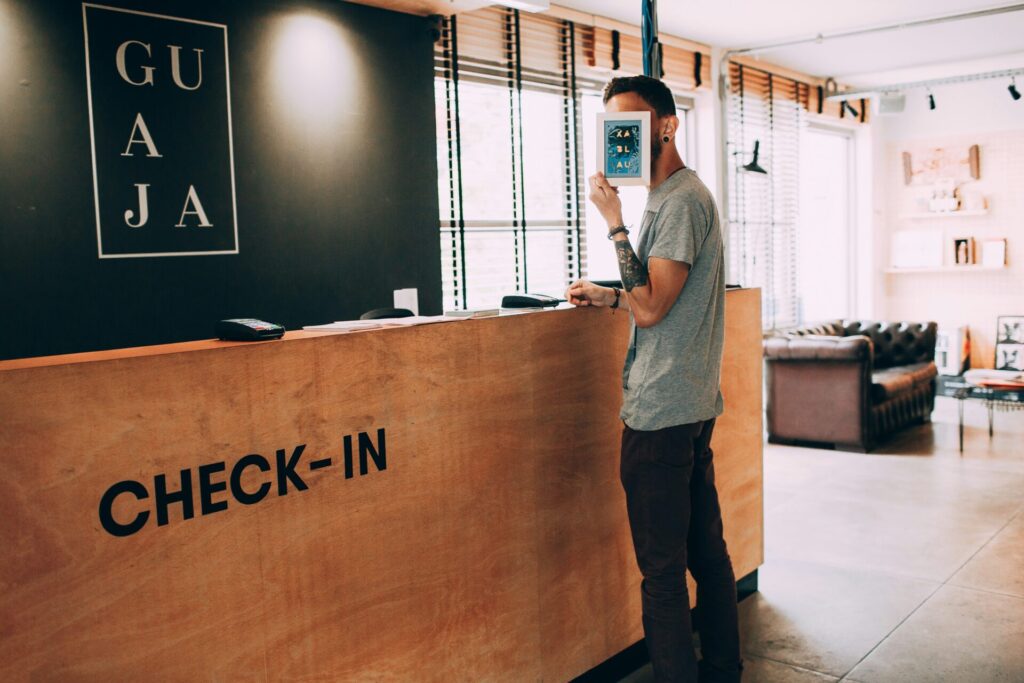How to Start a Hotel Business in Dubai
Every year, millions of travelers from around the globe flock to Dubai, one of the world’s most dynamic and rapidly growing cities. With its breathtaking architecture, luxurious malls, and vibrant nightlife, it’s no wonder that Dubai is a top destination for both leisure and business travelers. This influx of visitors has fueled significant growth in Dubai’s hotel and tourism sectors, making it an ideal location to start a hotel business in Dubai.
Table of Contents
ToggleRecent statistics reveal that Dubai’s hotel sector is on a steady upward trajectory, with the city now home to over 700 hotels. Despite the challenges posed by the ongoing pandemic, Dubai welcomed 3.7 million visitors in 2021 alone. This number is expected to surge in the coming years, aligning with Dubai’s ambitious tourism goal of attracting 25 million visitors annually by 2025.
To accommodate the increasing demand for accommodations, new hotels are constantly being constructed in Dubai. In 2022, the market saw the addition of 8,633 rooms through the opening of 33 new hotels, reflecting a 5% year-over-year growth. This expansion underscores the potential for entrepreneurs and investors to capitalize on the thriving hotel business in Dubai.
If you are considering opening a hotel in Dubai, there are several important factors to consider, such as obtaining the necessary licenses and permits, selecting the perfect location, and determining the appropriate staffing levels. In this blog, we will guide you through the essential steps to successfully launch a hotel in Dubai, offering tips and insights to streamline the process and enhance your chances of success.
How to Start a Hotel Business in Dubai: Types of Hotel Business Setup in Dubai
When considering starting a hotel business in Dubai, understanding the different types of setups available is crucial for making informed decisions. Here are the primary types of hotel business setups in Dubai:
1. Luxury Hotels
Overview: These are high-end hotels offering premium services, amenities, and accommodations. They cater to affluent travelers seeking luxurious experiences.
Examples: Five-star hotels, boutique hotels, and resort hotels.
Target Audience: High-net-worth individuals, business executives, and luxury tourists.
2. Mid-Range Hotels
Overview: Mid-range hotels provide comfortable accommodations and essential services at moderate prices. They balance quality and affordability.
Examples: Three-star and four-star hotels.
Target Audience: Families, business travelers, and tourists looking for value for money.
3. Budget Hotels
Overview: Budget hotels offer basic accommodations and minimal services at low prices. They cater to cost-conscious travelers.
Examples: Two-star hotels, hostels, and budget inns.
Target Audience: Backpackers, solo travelers, and budget-conscious tourists.
4. Serviced Apartments
Overview: These are furnished apartments available for short-term or long-term stays, offering hotel-like amenities such as housekeeping and concierge services.
Examples: Aparthotels, extended-stay hotels.
Target Audience: Long-term business travelers, expatriates, and families.
5. Boutique Hotels
Overview: Boutique hotels are smaller establishments with unique, stylish designs and personalized services. They often have a thematic or cultural focus.
Examples: Boutique inns, themed hotels.
Target Audience: Trendy travelers, couples, and tourists seeking unique experiences.
6. Resorts and Spa Hotels
Overview: Resorts and spa hotels provide extensive recreational facilities, wellness services, and luxurious accommodations. They are typically located in scenic areas.
Examples: Beach resorts, desert resorts, spa hotels.
Target Audience: Vacationers, wellness tourists, and families.
7. Business Hotels
Overview: These hotels cater primarily to business travelers, offering amenities such as conference rooms, business centers, and high-speed internet.
Examples: Conference hotels, executive hotels.
Target Audience: Corporate clients, business travelers, and event organizers.
8. Eco-Friendly Hotels
Overview: These hotels focus on sustainability and environmental responsibility, offering eco-friendly accommodations and services.
Examples: Green hotels, eco-lodges.
Target Audience: Environmentally conscious travelers, nature enthusiasts.
Choosing the right type of hotel business setup in Dubai depends on your target market, budget, and business goals. Each type offers distinct advantages and caters to different segments of travelers, ensuring a diverse and dynamic hotel industry in Dubai.
Benefits of Starting Hotel Business in Dubai- How to Start a Hotel Business in Dubai
Starting a hotel business in Dubai can be a highly profitable investment, thanks to the numerous advantages the city offers. Here are some of the key benefits of Starting a hotel in Dubai:
1. Growing Tourism Industry
Dubai is one of the most popular tourist destinations globally, attracting millions of visitors each year. Before the pandemic, the city recorded a record-breaking 16.73 million overnight visitors from abroad, a 5.1% increase from the previous year. Despite the challenges posed by COVID-19, Dubai still welcomed 3.7 million visitors in 2021, showcasing the resilience of its tourism industry. This number significantly increased in 2022 and is expected to continue rising in the coming years.
2. High Occupancy Rates
Dubai’s hotel industry benefits from consistently high occupancy rates, driven by year-round events and attractions. Even amid the pandemic, the city’s hotels maintained occupancy rates of around 60%. These rates are projected to rise as tourism rebounds, providing stable income for hotel businesses.
3. Lucrative Investment Returns
The hotel sector in Dubai offers excellent returns on investment. Despite the pandemic, the average daily rate (ADR) for hotels in Dubai was AED 468 (USD 127), and the revenue per available room (RevPAR) was AED 197 (USD 54), according to STR statistics. This demonstrates the profitability and potential for high returns in the hotel business in Dubai.
4. Events and Attractions
Dubai hosts numerous world-class events and attractions throughout the year, drawing visitors from around the globe. The city welcomed over 25 million visitors during Expo 2020, an international exhibition held in 2022. Additionally, events such as the Dubai Shopping Festival, GITEX, and the Dubai International Film Festival attract millions of tourists, ensuring a steady stream of potential guests for hotels.
Opening a hotel business in Dubai can be a smart investment due to the city’s expanding tourism sector, high occupancy rates, lucrative investment returns, and the myriad of year-round events and attractions. By capitalizing on these advantages, investors can establish a successful and profitable hotel business in Dubai.
Read Article: 10 Business Opportunities in Dubai UAE

How To Set up A Hotel Business In Dubai Step-by-Step
Before embarking on the journey to establish a hotel business in Dubai, it’s important to highlight a crucial distinction. While most businesses in Dubai follows similar legal and regulatory standards, the hotel industry operates under unique requirements. Unlike general businesses that typically require a trade license, starting a hotel business in Dubai necessitates obtaining a tourism license. Here are the steps involved in setting up a hotel business in Dubai:
1. Decide on a Location
Selecting the right location is crucial when launching a hotel business in Dubai, a city renowned for its rapid growth and allure to millions of global visitors. With over 700 hotels already in operation and Dubai’s goal to attract 25 million annual visitors by 2025, there’s substantial opportunity for new entrants. Your hotel’s location should cater to your target guests, whether they are drawn by Dubai’s prestigious events like the Dubai Shopping Festival, GITEX, the Dubai International Film Festival, or its numerous attractions.
2. Hire a Hotel Manager
A competent hotel manager is pivotal to your hotel’s success, ensuring smooth operations and maintaining high standards in Dubai’s competitive market. The manager should hold a “Certificate of Good Conduct” from the Dubai Police, demonstrating their integrity and capability to uphold your hotel’s reputation. They will oversee compliance with local health and safety regulations, including fire safety, hygiene standards, waste management, and food safety.
3. Register with the DED
To operate legally in Dubai, you must register your hotel business with the Department of Economic Development (DED). This involves choosing a business name, obtaining necessary licenses, and paying associated fees, typically around $8,500. Registration with the DED ensures your hotel business is recognized under the law and is a prerequisite for further approvals and operational activities.
4. Obtain Approval from the DTCM
After DED registration, seek clearance from the Department of Tourism and Commerce Marketing (DTCM). The DTCM classifies hotels from one to seven stars and also manages holiday homes, ranging from basic to deluxe. They will inspect your hotel property to ensure each room meets the minimum size requirement of 30 square meters and complies with health and safety standards. Upon passing inspections and meeting regulations, the DTCM will issue your hotel license.
5. Secure a Bank Guarantee
As part of the hotel licensing process in Dubai, the DTCM requires a bank guarantee. This financial security demonstrates your commitment to maintaining required standards and readiness for potential risks. Additionally, obtaining comprehensive insurance coverage is advisable to protect your hotel business against unforeseen events.
Regulatory Compliance and Guidelines- How to Start a Hotel Business in Dubai
Operating a hotel business in Dubai requires meticulous attention to regulatory compliance and established guidelines set forth by the Department of Tourism and Commerce Marketing (DTCM). Therefore, to understand further on how to start a hotel business in Dubai, let’s take a look at regulatory guidelines:
Regulatory Guidelines for Operating a Hotel Business in Dubai
1. Minimum Room Size and Operational Standards
- Room Dimensions: Ensure that all guest rooms meet the minimum size requirement of 30 square meters, mandated by the DTCM. This regulation applies uniformly across all categories of hotels.
- Guest Data Protection: Implement robust data security measures to protect guest privacy. Adhere strictly to DTCM guidelines on data collection, storage, and usage to ensure compliance with stringent data protection protocols.
- Transparent Pricing: Maintain transparency in pricing by clearly disclosing all charges associated with accommodation. This includes room rates, taxes, service fees, and any additional costs. Avoid practices that could mislead guests, as transparency fosters trust and enhances the guest experience.
2. Manager’s Certification
- DTCM-Approved Certification: Appoint a hotel manager who holds a valid certification approved by the DTCM. This certification signifies the manager’s competence in overseeing hotel operations and adhering to local regulations.
3. Health & Safety Regulations
- Comprehensive Compliance: Prioritize guest and staff safety by complying with comprehensive health and safety regulations set by the DTCM. These regulations cover fire safety protocols, food hygiene standards, emergency procedures, and accessibility for individuals with disabilities.
- Regular Inspections: Expect regular inspections by DTCM officials to verify compliance with health and safety regulations. Non-compliance can lead to penalties, so maintaining adherence to these protocols is crucial for operational continuity and guest safety.
Documents Required to Open a Hotel in Dubai?- How to Start a Hotel Business in Dubai:
To open a hotel in Dubai, you will need several key documents and approvals:
- Receipt of fee from initial approval
- Certificate of trade name
- Related payment receipts
- No-Objection Certificate (NOC)
- Copy of a minimum three-month tenancy agreement
- Ejari certificate copy for the hotel property
- Documents submitted for initial approval and other certificates
- Support from Dubai Municipality and other relevant bodies for sanitation, waste management, and public health compliance.
These documents are essential for obtaining the necessary licenses and approvals to legally operate a hotel in Dubai. If you’re planning to start a hotel business in Dubai and need assistance with the process, feel free to contact us; we’ll be happy to help you navigate through the requirements.
Ready to Start a Hotel Business in Dubai?
Understanding the rules, regulations, and legal requirements for setting up a hotel business in Dubai is crucial for ensuring a smooth and compliant establishment process. While this process may appear complex and daunting, you can rely on the expertise of business consultants at Alfa Zone to guide you through every step.
If you’re considering starting a new hotel business in Dubai, our experienced consultants and legal advisers are here to provide comprehensive information, full support, and sound advice. By connecting with us, you can rest assured that we will handle all aspects of your hotel business setup, ensuring adherence to regulations and facilitating a successful launch.
Reach out to us today to begin your journey towards establishing a hotel business in Dubai with confidence and expert guidance.
Business Setup Company in Dubai, Business Setup in Dubai, Business Setup Consultants in Dubai, Business Setup in Dubai Free Zone, Business Setup in Dubai Mainland, Start a Hotel Business in Dubai, Business Setup Services in Dubai, Low Cost Business Setup in Dubai



